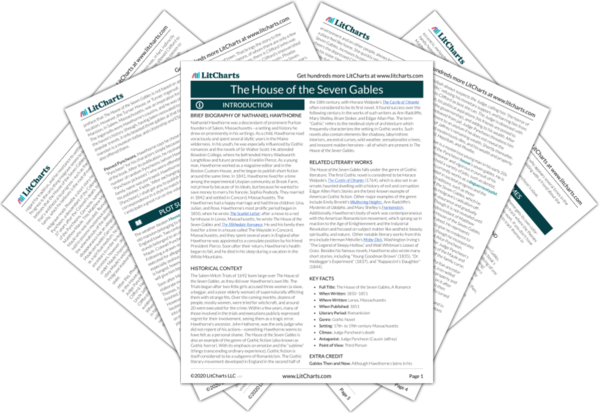Holgrave, at least according to Hepzibah, is connected to radical social reform movements that were popular in the mid-19th century, but Hepzibah tolerates his strangeness because of her own sense of disconnection from mainstream society. Phoebe, however, is staunchly law-abiding and finds his radicalism alarming.
